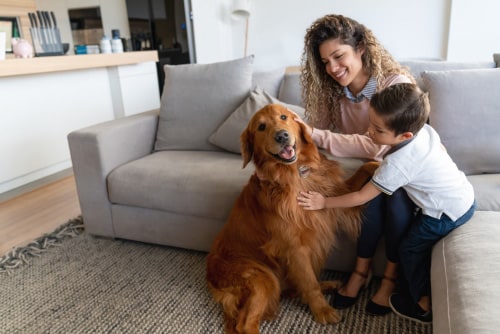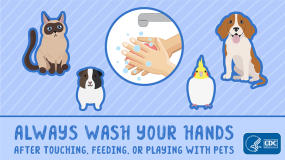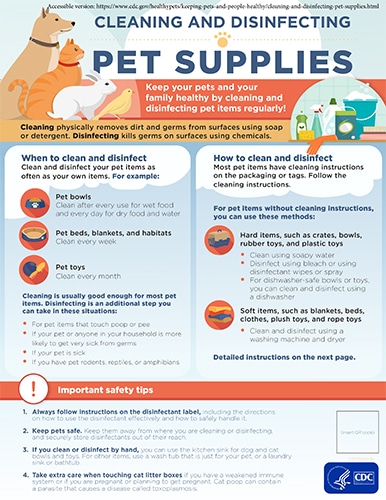Hygiene Practices Around Animals

Contact with animals has many positive effects for people. However, animals can carry harmful germs that make people sick even when the animal looks healthy and clean.
Germs that may be spread from animals to people include E. coli O157:H7, Salmonella, Cryptosporidium, Coxiella burnetii, Campylobacter, Yersinia enterocolitica, and ringworm. For a list of other diseases that spread between people and animals (zoonotic diseases), visit CDC’s Healthy Pets, Healthy People site.
Always wash your hands thoroughly with soap and water after handling animals and anything where they live or roam. This includes:

Always wash your hands after touching, feeding or playing with pets
- After touching or playing with your pet
- After feeding your pet or handling pet food
- After handling pet habitats or equipment (such as cages, tanks, toys, and food and water dishes)
- After cleaning up after pets
- After leaving areas where animals live (such as coops, barns, and stalls), even if you did not touch an animal
- Before eating and drinking
- Before preparing food or drinks
- After removing soiled clothes or shoes
Running water and soap are best for handwashing, but you can use hand sanitizer with at least 60% alcohol until running water and soap are available. Adults should supervise handwashing for young children.
Children younger than 5 years old, people with weakened immune systems, and people 65 years and older are more likely to get diseases spread between animals and people. Pregnant women are also at a higher risk for certain animal-related diseases. If you or a family member are concerned about these diseases, talk to your healthcare provider and veterinarian about prevention practices, including how to stay safe and healthy around pets and other animals.
Find tips on when and how to clean and disinfect pet items safely.
